'We came close to closing' - Yorkshire head teachers speak out about the covid costs toll on schools
The Government has failed to take into account variable infection rates when planning education budgets, head teachers across the region have said.
Extra support is needed to help schools in the region who face increased budgetary costs - from having to “backfill teaching staff,” to extra unforeseen cleaning bills.
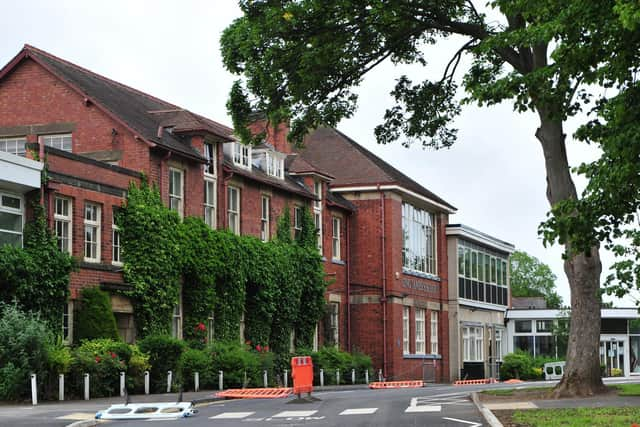

Advertisement
Hide AdAdvertisement
Hide AdIt comes after no additional funding to cover covid costs was announced for schools as part of this week’s Spending Review announcement from the Government.
Rishni Sunak announced school funding in England will be increased by £2.2bn next year - sticking to the spending plan it first announced in August 2019 to boost the schools’ budget by an extra £7.1bn by 2022-23.
Paul McIntosh, the acting headteacher of King James’s School, a secondary school in Knaresborough, has urged ministers to help after it was revealed this week in Parliament that the school needed to spend up an extra £7,000 a week tackling covid.
At the most “challenging point” 15 staff, out of 100, were off the week before and after the October half-term, with the school “coming close to having to close”.
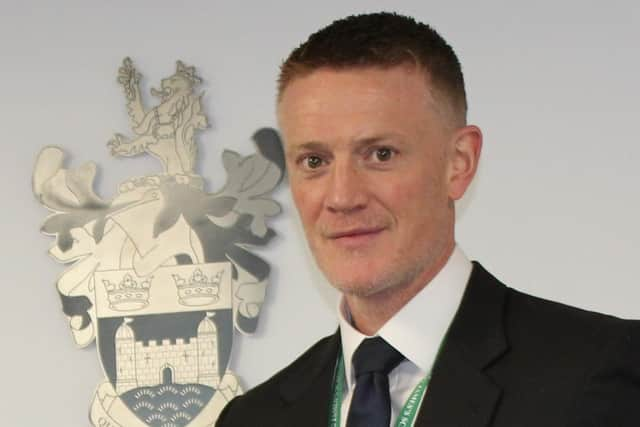

Advertisement
Hide AdAdvertisement
Hide AdMr McIntosh, who stepped into the acting head role at the beginning of October this year, told The Yorkshire Post: “It’s been difficult keeping the school running - the worst weeks were when we had a lot of staff not in for different reasons.
“For a few days we were pretty tight… We came close to closing on a few days but we managed to get cover in.”
He added a “definitive decision” needed to be made by the Government, about whether GCSE and A-level exams will go next year, amid calls that they should be replaced by school-based assessments next year.
The Government is expected to announce a decision by the end of this month, but Mr McIntosh also said it should be taken into consideration that pupils in the North and Yorkshire have been worse hit by coronavirus.
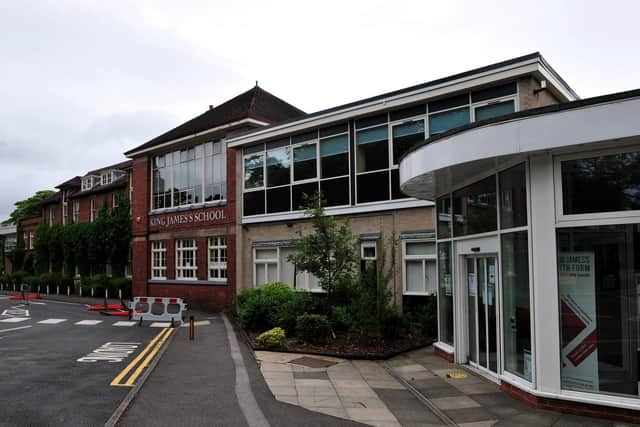

Advertisement
Hide AdAdvertisement
Hide AdIt comes as the latest Government figures show that school attendance dropped from 89 per cent to 86 per cent in the week ahead of the October half-term - and some areas in the North had attendance rates for secondaries as low as 61 per cent, whereas others in the South were close to the usual figure of 95 per cent.
Mr McIntosh said: “Whether they are going to cancel them or not - they need to make a decision pretty soon.”
He added: “But there is an unfair playing field across the country - I really feel for students who are in inner city Manchester, Leeds and Liverpool - who have missed school not during lockdown but have missed school in September.
“You compare them with some student in the South or South West who has been at school for the whole 12 weeks - surely that is not fair - you have got two sets of students potential in the Summer sitting down and doing the same exam.
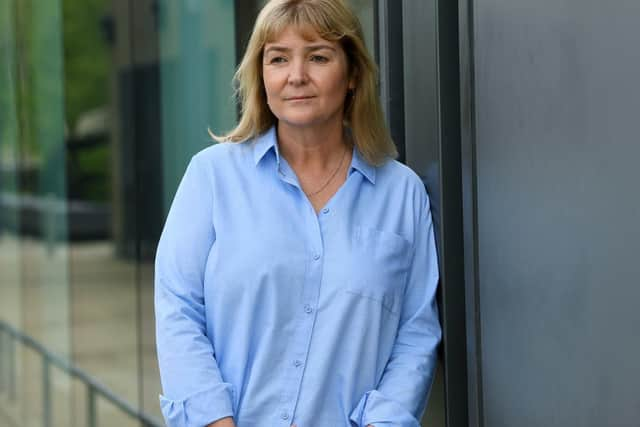

Advertisement
Hide AdAdvertisement
Hide Ad“The last thing you would want is for your chances of success in education to be dictated to by where you live - it should be fair and level for everyone.”
The acting head also said the school, which caters for 1,500 students, had come under extra strain from the unforeseen costs of cleaning requirements brought on due to covid health and safety - and predicted between now and next Easter the school will have a £20,000 bill.
He said: "In the present climate, it is unsustainable to keep spending the extra money on resources like additional cleaning and supply teachers in order simply to maintain the school functioning in a relatively normal capacity.”
Meanwhile in West Yorkshire, Judy Shaw, the co-headteacher for Tuel Lane Infant School, Sowerby Bridge, and former president of the National Association of Head Teachers, has called for more support for rural schools across the region and their wider community, who have faced “significant” challenges.
Advertisement
Hide AdAdvertisement
Hide AdMs Shaw, who has been head for 15 years at the primary school which caters for 110 pupils, has called for extra funding and support to ‘small schools’ after reporting last week 11 of her team of 25 staff were having to isolate, with 30 children also off.
She said: “The pressure on all schools is immense at the moment but it’s particularly heightened in small schools where just one positive test can mean staff, resources and funding become scarce really quickly.
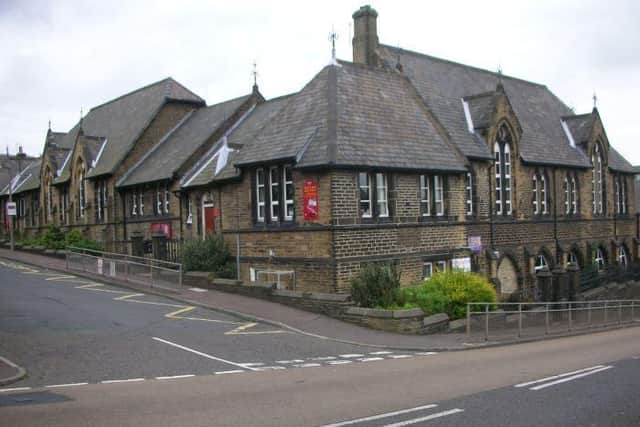

“My small school in West Yorkshire has been badly hit.”
The Calderdale based head also revealed one day this week she had to cover three other roles, alongside her leadership role, including collecting and serving school dinners and washing up after, supported admin tasks and providing support for a child with special educational needs and disabilities (SEND).
She said: “In a small school, there’s one person for every job and every absence has to be covered by someone else who already has their own job to do.
Advertisement
Hide AdAdvertisement
Hide AdThere’s a lot of good will and people are doing other people’s jobs but how long can we rely on just goodwill? They are all very tired.
“I’m concerned about my staff, I’m concerned for people in leadership. I think they are covering lots of roles.
“On that particular day I had a lot of staff isolating - so I needed to step in.
“At about two o’clock I went back to my own desk to start my own job. And I’m not the only one.”
Advertisement
Hide AdAdvertisement
Hide AdMs Shaw added: “Just keeping our schools open and keeping education going and the welfare - is taking all our energy - it’s operational at the minute rather than strategic.”
The headteacher said extra funding was needed for ‘small schools’ across the region, who faced extra unplanned spending, due to costs added on due to the pandemic, on already “stretched budgets”.
She said: “Funding support from the government is needed.
“We haven’t got any wiggle room in our budgets at all… Small schools in particular are running on very very tight budgets.
“We plan our budgets well in advance for this financial year and for the next two - and all of this is unplanned spend, in already stretched budgets.
Advertisement
Hide AdAdvertisement
Hide Ad“The school isn’t in crisis at the minute - but it’s unsustainable in the long term.”
She added: “As a school we will go on as long as we possibly can - and each school will have its own breaking point.
“Unplanned spending needed to cover coronavirus costs is going to leave a whole in our budgets... Something will have to go at some point.
“We are talking about significant amounts of money - that we are not being supported with.
Advertisement
Hide AdAdvertisement
Hide Ad“There will have to be compromises along the way. Whether that be cuts in staffing or resources or other important elements like that.”
Gillian Keegan, the skills minister, said this week the government had provided £75,000 additional funding for “unavoidable costs that could not be met from their existing budgets”.
She added: "There will be a further opportunity later in the year for schools to claim for eligible costs that fell between March and July."
________________
Support The Yorkshire Post and become a subscriber today.
Your subscription will help us to continue to bring quality news to the people of Yorkshire. In return, you'll see fewer ads on site, get free access to our app and receive exclusive members-only offers. Click here to subscribe.
Comment Guidelines
National World encourages reader discussion on our stories. User feedback, insights and back-and-forth exchanges add a rich layer of context to reporting. Please review our Community Guidelines before commenting.